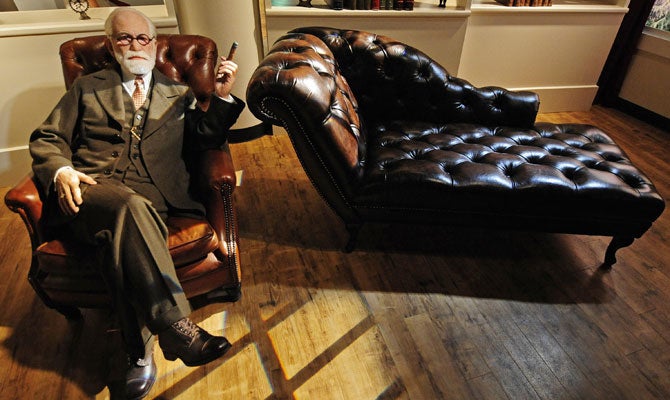
Your support helps us to tell the story
From reproductive rights to climate change to Big Tech, The Independent is on the ground when the story is developing. Whether it's investigating the financials of Elon Musk's pro-Trump PAC or producing our latest documentary, 'The A Word', which shines a light on the American women fighting for reproductive rights, we know how important it is to parse out the facts from the messaging.
At such a critical moment in US history, we need reporters on the ground. Your donation allows us to keep sending journalists to speak to both sides of the story.
The Independent is trusted by Americans across the entire political spectrum. And unlike many other quality news outlets, we choose not to lock Americans out of our reporting and analysis with paywalls. We believe quality journalism should be available to everyone, paid for by those who can afford it.
Your support makes all the difference.
What courses? Psychology; behavioural science; business psychology; criminological psychology; educational psychology; equestrian psychology; experimental psychology; forensic psychobiology; health psychology; neuropsychology; psychological studies; psychology in education; sport psychology; sport & exercise psychology;
What do you come out with? Usually a BSc, sometimes a BA or an MA in Scotland.
Why do it? "Psychology is about understanding people, human behaviour and experiences. It is a popular, diverse and exciting area of study. Recent research by the Higher Education Careers Services Unit indicates that psychology graduates have a much better than average chance of gaining employment post graduation. Students gain an impressive range of transferable skills, that can be the first steps in a psychological career or provide them with a real edge when competing with graduates from other disciplines." - Frances Dodd CPsychol, senior lecturer in occupational psychology at York St John University
What's it about? Psychology is the scientific study of mental processes and behaviour. Primarily, it is the investigation of what people do and why they do it. The first year of the course tends to focus on the understanding of ideas, theories and methods in psychology. You’ll also learn how to analyse and evaluate psychological concepts, and develop skills in assessing different kinds of evidence. You’ll most likely learn about cognitive psychology which explores the internal mental processes of human beings as well as personality and individual differences. Advanced options include the psychology of violence and victimisation (offered at The Royal Holloway), the psychobiology of drug addiction (York) and qualitative and quantitative statistics and computing (Bath).
Study options: Three years at most places; four in Scotland, or four years with a placement year. Bath has a compulsory placement year in which students can work with professional psychologists in a range of settings, from prisons and hospitals to local authorities and commercial businesses.
What will I need to do it? York and Lincoln are looking for a science A-level, but it doesn’t have to be psychology. At Royal Holloway, they’re very flexible, and welcome most subjects at A-level. Bath wants to see a science or social science at A-level, which can include sociology, maths or politics. It’s A*AA for Bath, AAA-AAB at York and AAB at Royal Holloway. A typical offer from Hull is BBC while Lincoln asks for 300 UCAS points.
What are my job prospects? It varies year on year and between universities. While some students pursue further study with the hope of becoming a professional psychologist, others use their transferable skills to go into accountancy, teaching, health work, law, consultancy or business administration. According to The Times’ Good University Guide 2012, only 26 per cent of graduates go straight into graduate-level positions, and average starting salaries are relatively low at £18,176.
Where’s best to do it? Cambridge offers psychology as part of its natural sciences degree and came top of the Complete University Guide 2012, followed by Oxford, UCL and Bath. Students were most satisfied at York St John and Heriot-Watt however.
Related Courses: Criminology; philosophy; sociology; social work; health and social care.
Join our commenting forum
Join thought-provoking conversations, follow other Independent readers and see their replies
Comments